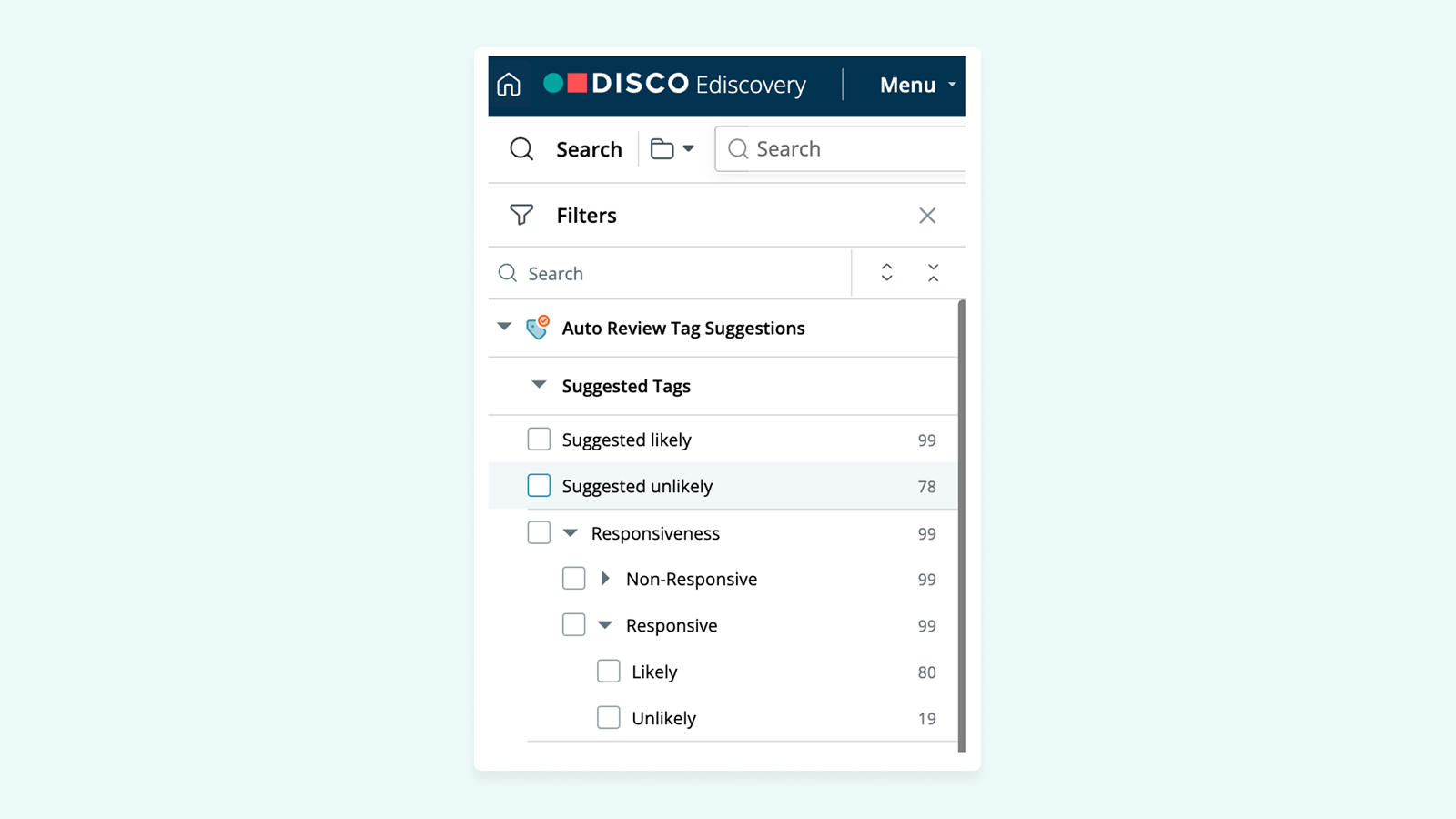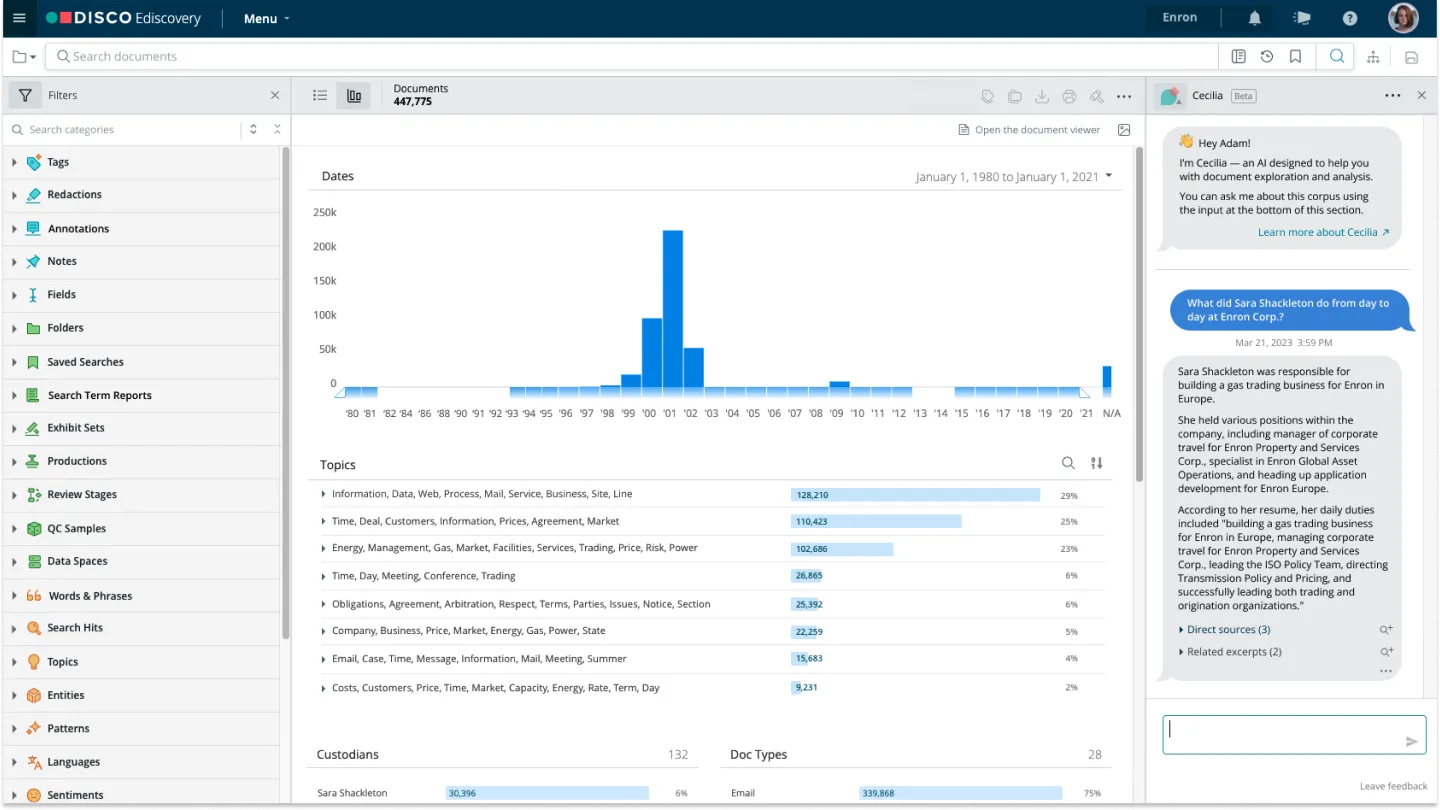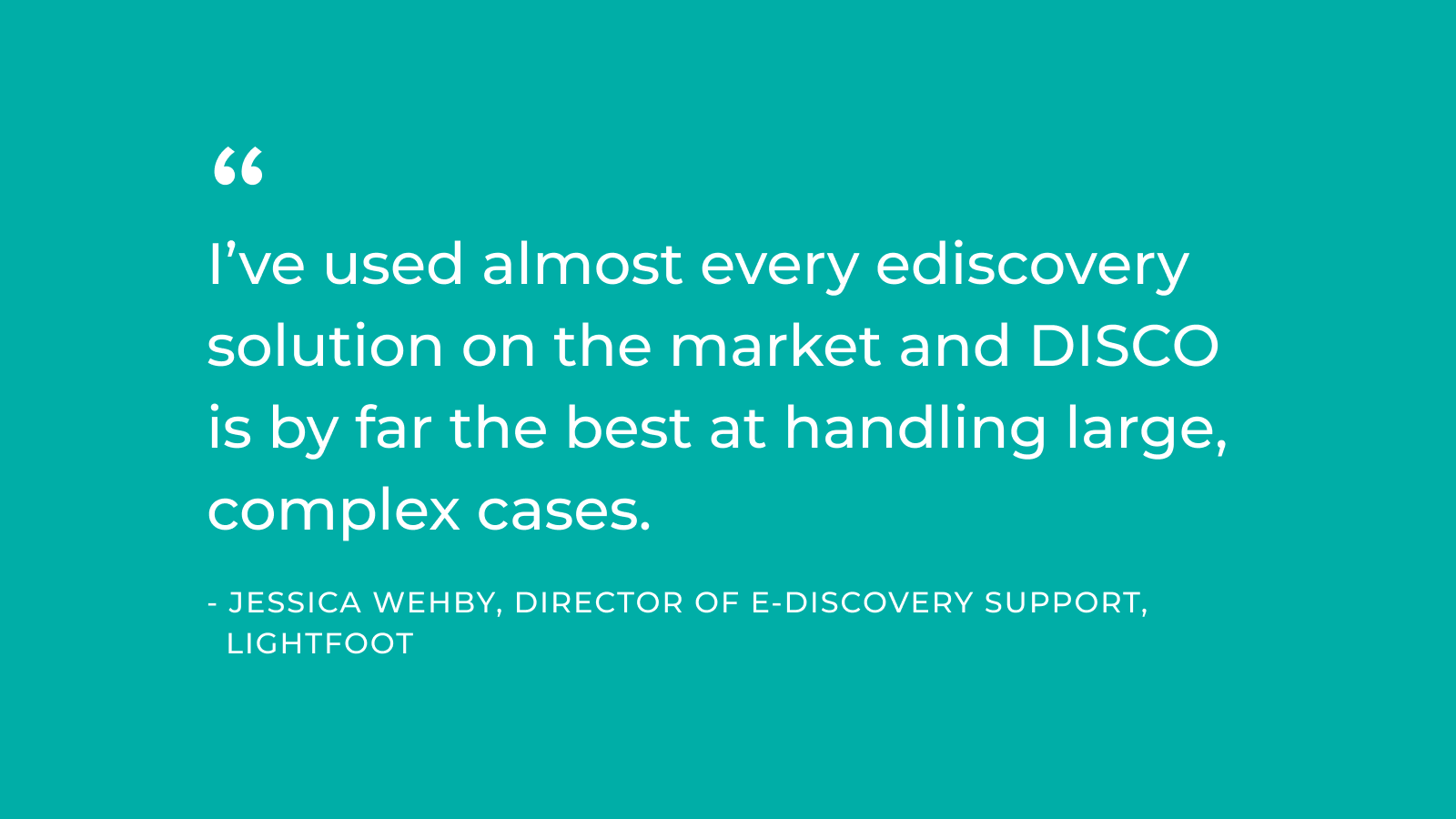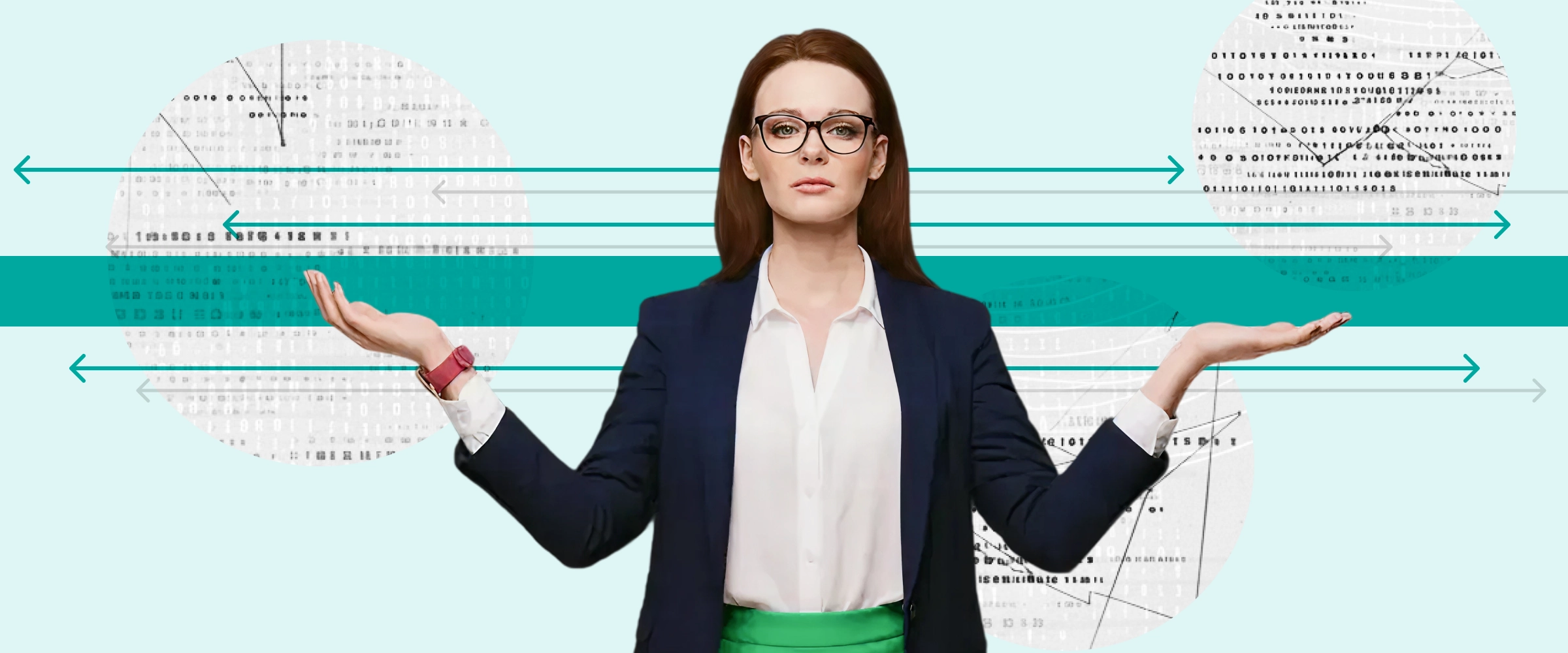⚡️ 1-Minute DISCO Download
Abraham Lincoln once said, "The best way to predict your future is to create it." In today's increasingly connected, complex, and competitive legal landscape, this quote resonates more than ever. Lawyers at all career stages, whether they work in-house or in private practice, have a generation-defining opportunity to shape the future of legal practice by embracing technologies powered by artificial intelligence (AI). These technologies offer immense potential to transform the way lawyers and legal professionals approach their work, not least in terms of automation, but in removing the barriers created by an adherence to the status quo.
In this blog, we'll explore how AI and generative AI are impacting the legal profession today, look at some of the AI research, highlight the competitive advantages firms can gain from adopting this technology today, and provide real-world examples of AI's transformative potential for AI ediscovery.
The impact of intelligent automation on legal discovery
In the legal world, discovery is a notoriously time-consuming process. As lawyers sift through reams of documents and data, they often spend countless hours searching for the proverbial needle in the haystack.
Related: Quick Guide to Ediscovery Rules and Best Practices 💡
Enter intelligent automation — a term denoting the use of AI-powered tools to streamline processes and workflows. By leveraging machine learning algorithms, automated discovery tools can analyze massive data sets, identifying patterns and correlations that would be impossible for a human to detect. These tools can then highlight the most relevant documents, dramatically reducing the time and cost of discovery.
According to Deloitte, 63% of organizations believed that process intelligence accelerated the discovery process. This belief, fuelled by an ever-growing focus on efficient, cost-effective service delivery, will undoubtedly impact purchasing decisions and potentially act as a differentiator between firms that engage with automation — allowing their lawyers to focus on higher-value strategic work — and those that don’t.
Learn more about the benefits of modern ediscovery: The Ultimate Guide to Ediscovery (download) ⬇️
Litigation and the power of predictive analytics
Beyond discovery, intelligent automation has the potential to transform litigation. Predictive analytics, a form of machine learning that analyzes historical data to predict future outcomes, can help lawyers make more informed decisions about which cases to pursue and how to strategize their arguments.
For instance, a predictive analytics tool could analyze past case outcomes based on factors such as the judge, the opposing counsel, and the type of claim. This analysis could then inform a lawyer's litigation strategy, helping them anticipate potential challenges and adjust their approach accordingly.
In an increasingly competitive legal market, the ability to predict outcomes could offer a substantial advantage. Firms that adopt these technologies today will be better equipped to navigate the future of litigation, setting themselves apart from their competitors.
The competitive edge of early adoption
According to a report by ThomsonReuters, 82% of lawyers thought generative AI could be applied to legal work, but only 3% of firms were actively using it. Whether you take a cautious or cautiously optimistic view of this technology, the opportunity to deploy AI within legal workflows has the potential to become a major competitive differentiator.
According to Thomson Reuters, 80% of extensive AI adopters have better financial performance than non-adopters, while Deloitte reports that organizations that adopt intelligent automation “benefit from increased productivity, improved accuracy, and better customer experience.”
These figures underline the competitive advantage that early adoption can confer. Firms that embrace intelligent automation today will be better positioned to leverage these technologies as they become more widespread, establishing themselves as leaders in a rapidly changing legal landscape.
📚 Related reading: Alternate Legal History: If Enron Had DISCO
The promise of intelligent automation
While the rise of intelligent automation may seem daunting, it also presents a significant opportunity. By embracing these technologies, lawyers can streamline their workflows, improve their decision-making, and position themselves at the forefront of their profession.
However, the transition to a more automated legal sector will not happen overnight. It will require a concerted effort from legal professionals at all stages of their careers, from newly minted associates to seasoned partners. Firms will need to invest in training and development, ensuring their teams have the skills needed to navigate this new landscape.
Moreover, the legal sector must remain vigilant to the ethical considerations posed by these new technologies. As we entrust more of our decision-making to algorithms, we must ensure that these tools are transparent, unbiased, and accountable.
The legal profession is on the cusp of a new era. By embracing intelligent automation, we can ensure that we are prepared to meet the challenges and opportunities of this exciting new era head-on.
But don’t worry, you’re not alone! Read on…
Related: DISCO Introduces Cecilia Deposition Summaries, Powered by Generative AI 🤖
Step into the future with DISCO
The future of the legal profession is framed by a partnership with suppliers that can help firms and departments deploy intelligent automation.
DISCO recently unveiled Cecilia, an ediscovery AI chatbot capable of significantly improving the effectiveness and efficiency of legal document review. Cecilia is capable of understanding the nuanced context of legal matters, allowing it to make remarkably accurate predictions about document relevance. The model continuously learns and improves, offering unprecedented assistance in ediscovery. It's the perfect embodiment of the power and potential of intelligent automation in the legal field.
To learn more about the future of legal technology and how tools like Cecilia are shaping the landscape, we invite you to listen to our pre-recorded, 20 minute webinar with a demo of Cecilia’s capabilities.
See what DISCO and Cecilia can do for you: Request a demo.

.webp)




%20(1).jpeg)








